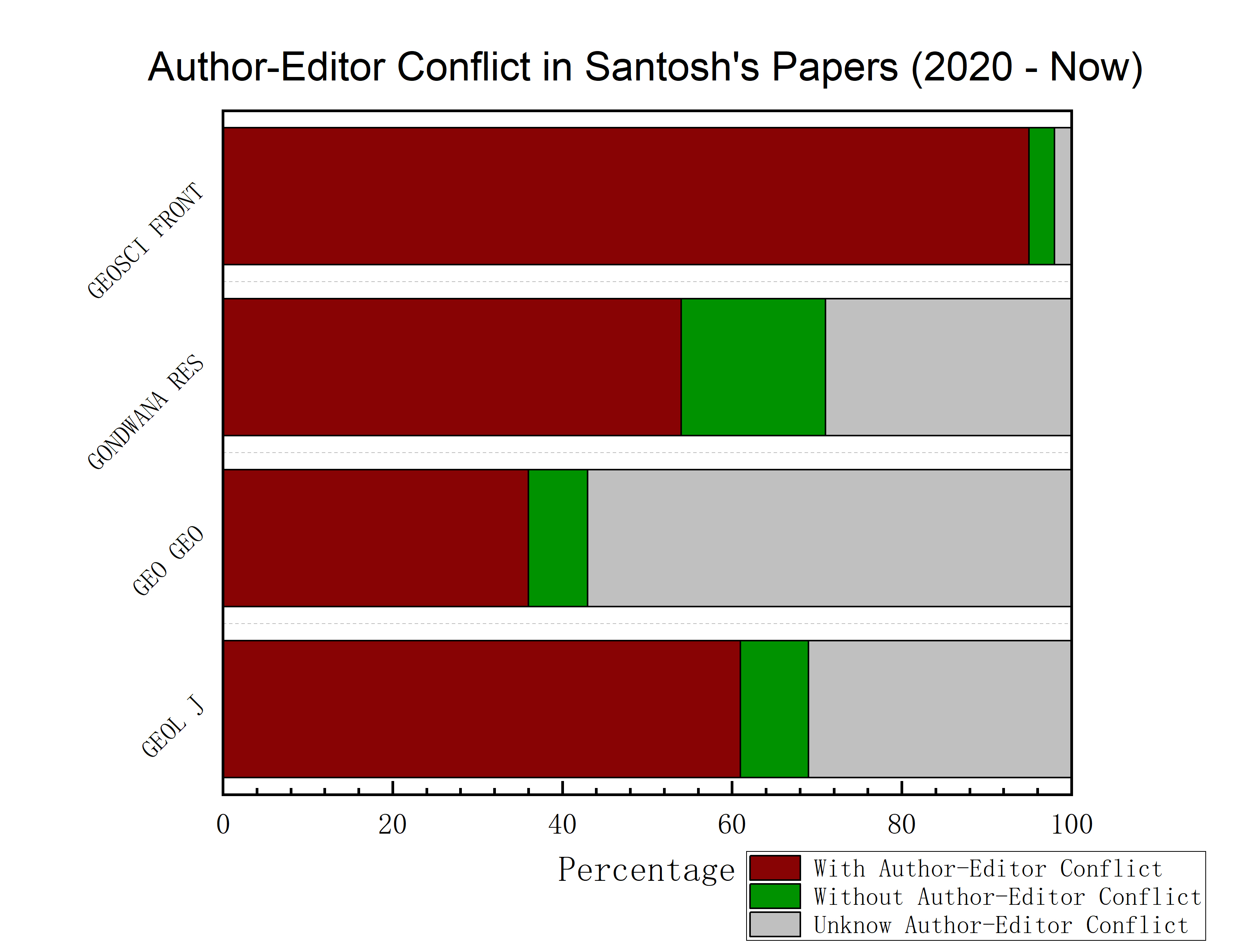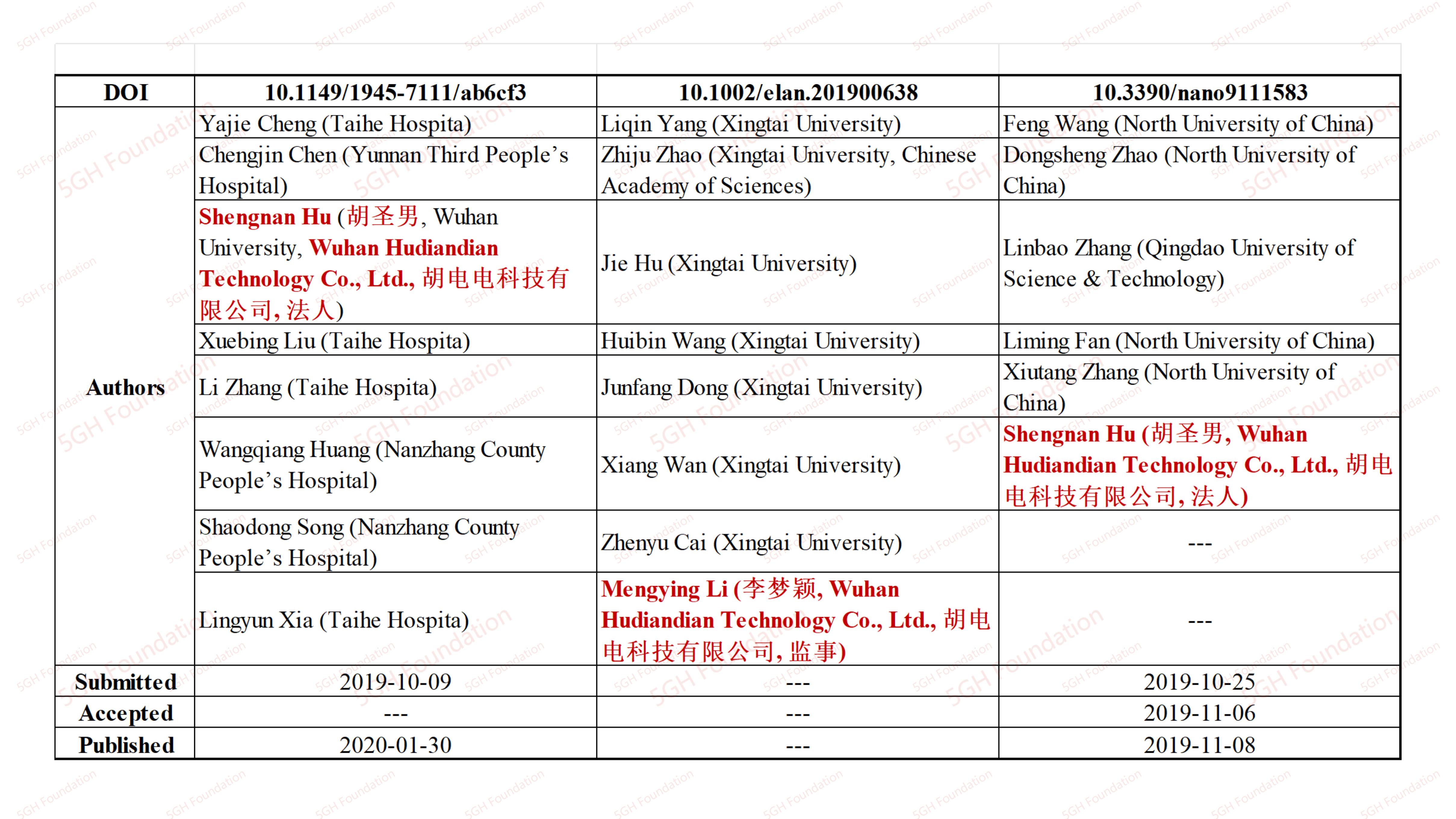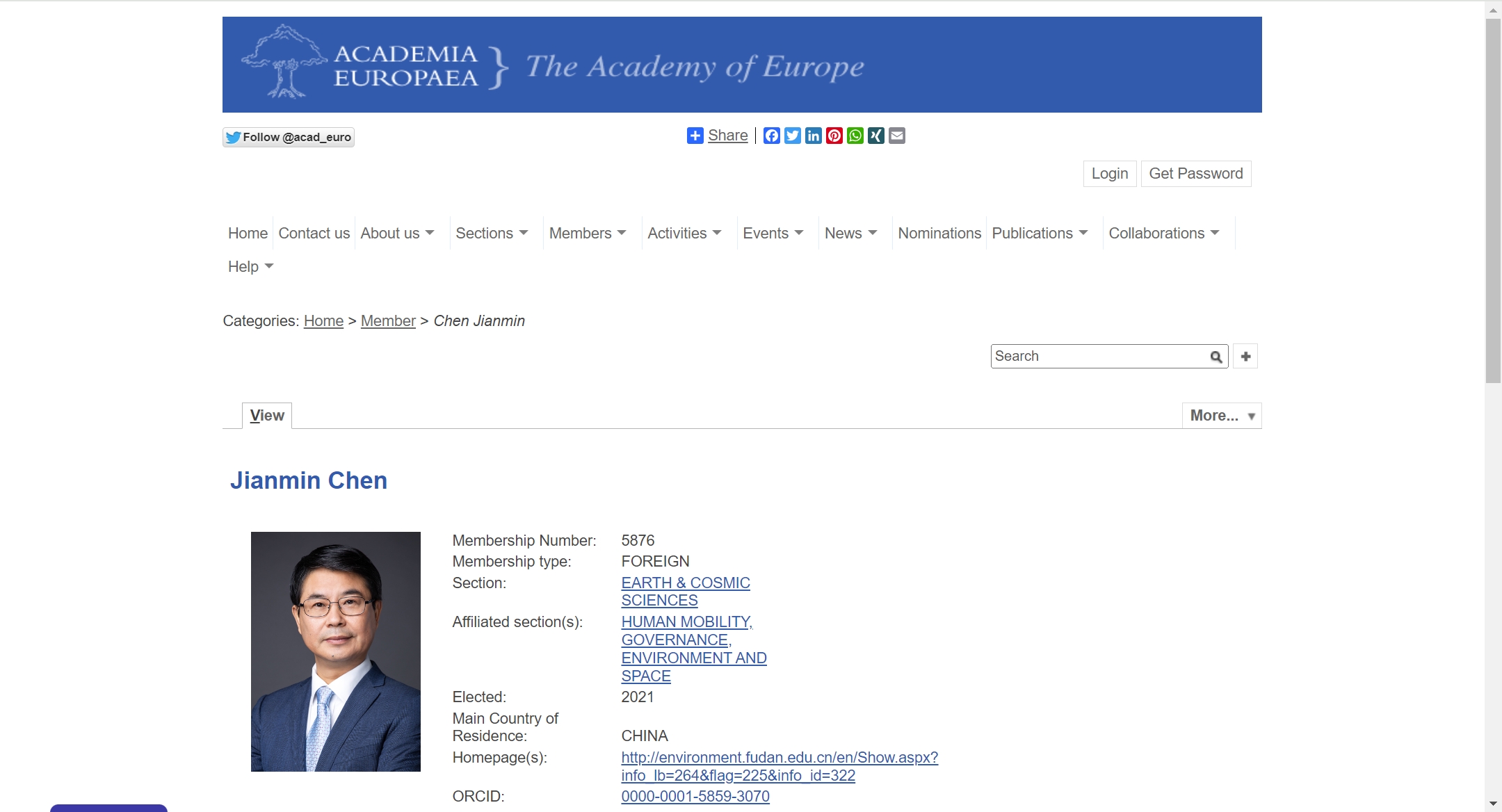WANG Aijie’s Questionable Editorial Contributions on Environmental Research
Previously, the 5GH team and our international allies exposed some questionable editorial contributions of WANG Aijie as Editor-in-Chief on Environmental Research, an Elsevier title [1]. As the investigation went on, we found more concerning editorial activities from Wang, a professor at Harbin Institute of Technology and CAS Research Center for Eco-Environmental Science, and she was also a winner for the National Science Fund for Distinguished Young Scholars, China. Here, we update the list [2] for her questionable editorial contributions.
Edit-for-Themself
Three articles [3-5] coauthored by Wang were handled by herself, according to the original information on the website of the journal. This caused conflict of interest, and publishers, including Elsevier, prohibit their editors to do so. We exposed these conflict of interest at [1], and others posted their concerns on PubPeer.
However, the journal posted two corrigendums [6-7] in September, 2024, months after our report and the PubPeer posts, denying Wang got involved in the editorial process to [4] and [5], stating that “it is the policy of the journal and Elsevier that editors must not be involved in decisions about papers which they have written themselves. ... An audit has been conducted which shows that this paper, ... was handled appropriately and was subject to several rounds of independent peer review which were supervised by another of the journal's Associate Editors”. The 5GH team found no similar corrigendum to [3].
The corrigendums provided no reliable original records about the editorial process for [4] and [5], which is crucial to support the statements on the above-mentioned corrigendums. It is hardly to believe a same mistake happened three times on a well-recognized Elsevier title.
On the corrigendum [7], NI Bingjie was mentioned to be the Associate Editors to supervise the “several rounds independent peer review” to article [5]. The 5GH team noticed WANG Aijie had strong academic relationship with NI Bingjie, they coauthored on several articles (such as article [8] and others) which can dated back to 2016 and until recently. This also caused conflict of interest about NI’s editorial contribution to article [5].
Edit-for-Pal
WANG Aijie has 39 edit-for-pal records, including 3 cases where she acted as the handling editor for the articles from her previous coauthors [9-11], and 36 cases where she acted as handling editor for the articles from authors in her institutions, CAS Research Center for Eco-Environmental Science, and/or Harbin Institute of Technology (including Harbin Institute of Technology Shenzhen) (article [12] and others).
During the time the work [9] and [10] were done, and the manuscripts (coauthored by Huu Hao NGO) were submitted to Environmental Research for consideration of publication,WANG Aijie and NGO coauthored on several articles (such as [13] and others). Therefore, the editorial role of WANG for the article [9] and [10] caused conflict of interest.
WANG Aijie and ZHANG Yifeng have longer academic relationship. They coauthored on articles which can date back to 2020, such as article [14] and others, and thus, WANG’s editorial role for article [11] (coauthored by ZHANG) also caused conflict of interest.
On the other hand, WANG also received large number of Edit-for-Pal from NGO and ZHANG, including article [15], [16] and others. Concerns are raised that these researcher group is likely taking advantages of their editorial roles to promote the publications of each other.
WANG Aijie’s other 36 Edit-for-Pal cases were about the articles ([13] and others) from CAS Research Center for Eco-Environmental Science, and/or Harbin Institute of Technology. At least one author on each of these articles works at a same institution(s) as WANG. Publishers and journals always strictly forbid editors to handle manuscripts from their own institutions, concerning this kind of editorial contributions may cause conflict of interest.
The 5GH team notices that most of the articles on Environmental Research do not disclose the information of the handling editor, only a few published in 2023 and 2024 provide such information. This indicates that the number of WANG’s questionable editorial contribution may be much larger than we recently found, and it also indicates that other editors on Environmental Research may also get involved in questionable editorial contributions, raising concerns about the editorial practices of this Elsevier title.
Reference
[1] 5GH-WuGH-20240529.001 (in Chinese)
[2] List for WANG Aijie’s Questionable Editorial Contributions
[3] 10.1016/j.envres.2024.118859
[4] 10.1016/j.envres.2023.115409
[5] 10.1016/j.envres.2023.116061
[6] 10.1016/j.envres.2024.120000
[7] 10.1016/j.envres.2024.120001
[8] 10.1016/j.ibiod.2016.09.005
[9] 10.1016/j.envres.2023.117493
[10] 10.1016/j.envres.2023.117213
[11] 10.1016/j.envres.2023.117641
[12] 10.1016/j.envres.2023.116737
[13] 10.1016/j.scitotenv.2023.168036
[14] 10.1016/j.watres.2020.115696







